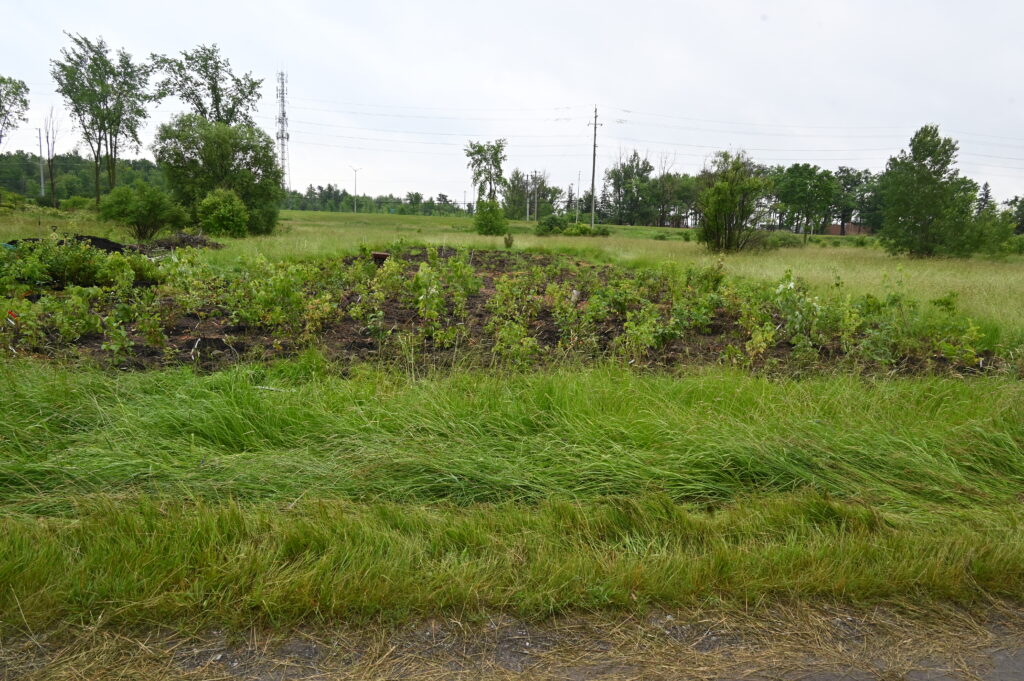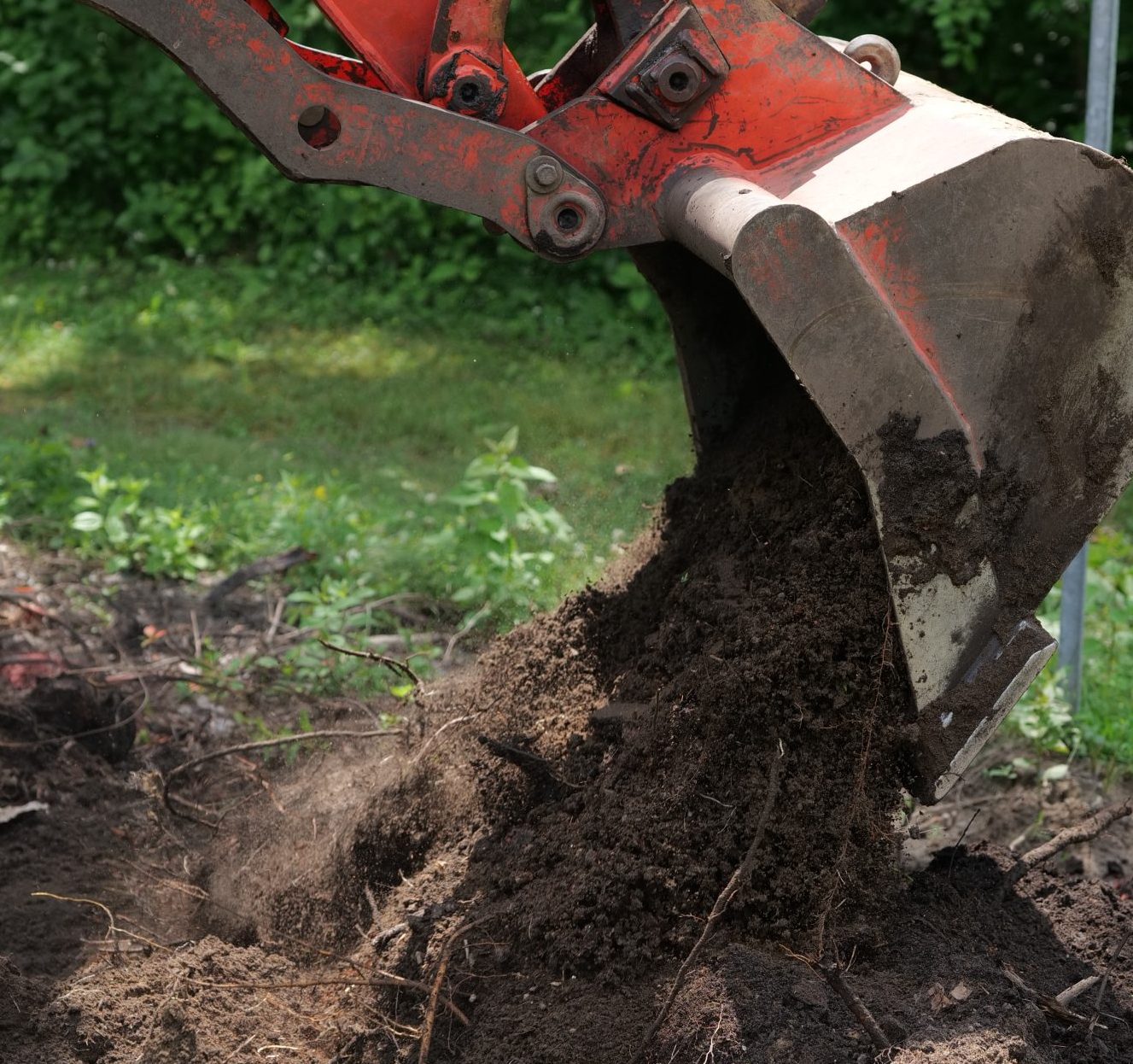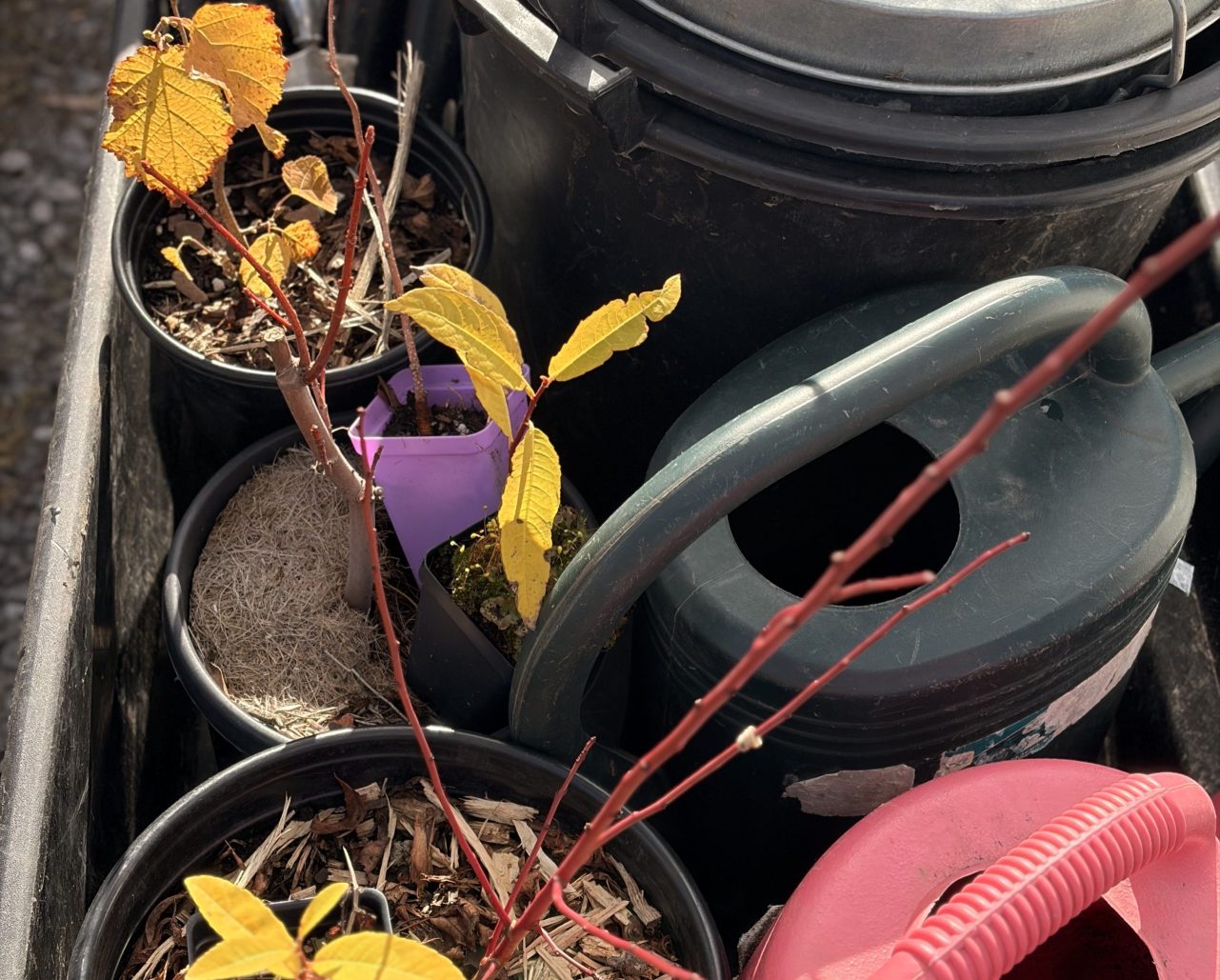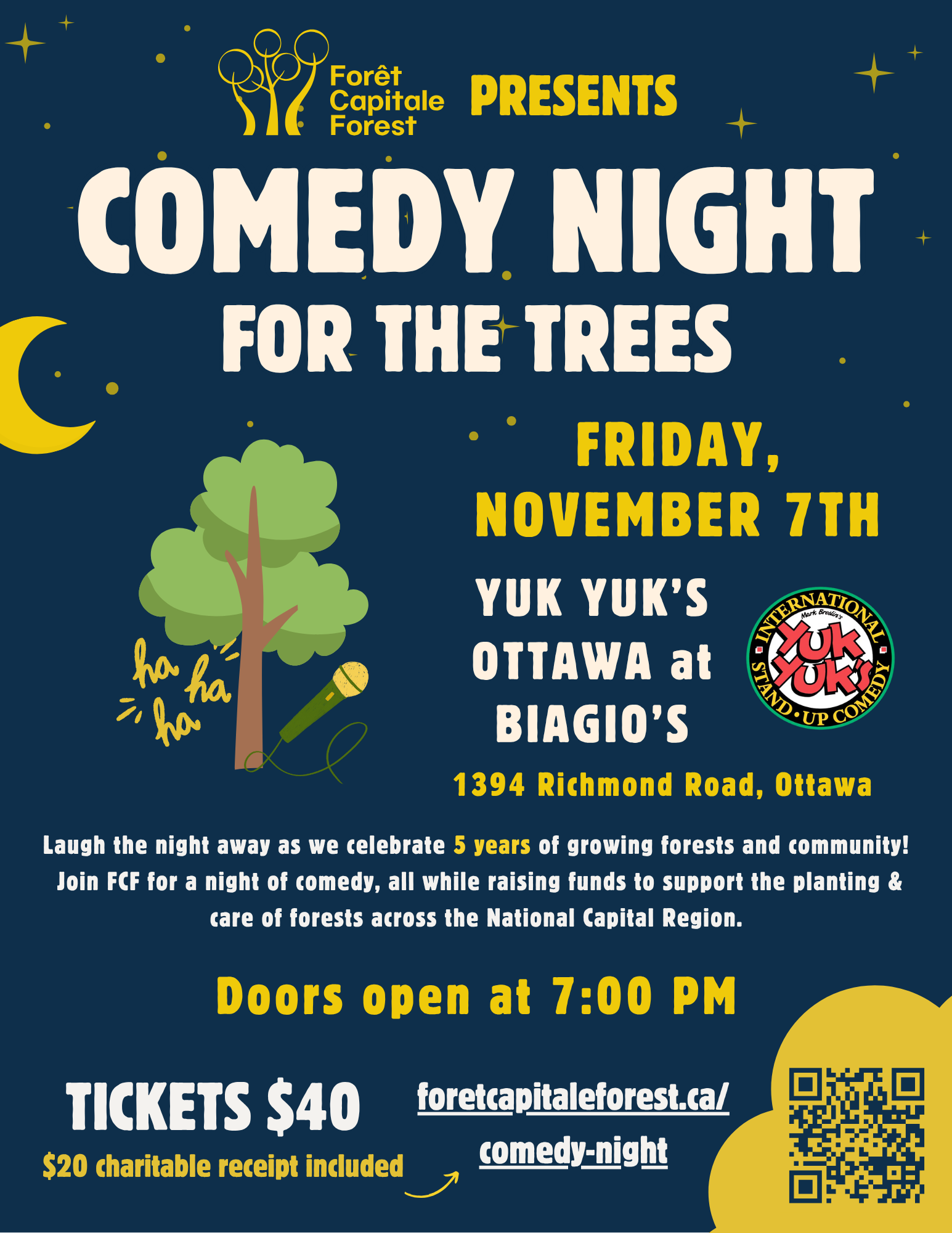
We have established several “Tiny Forest” plots located at our Base of Operations – each approximately the size of a tennis court consisting a native trees, shrubs, and forbs. The purpose of these tiny forests is to showcase examples of how you can transform small spaces into dynamic, biodiverse, food-producing, and self-sustaining spaces and as well as support our city through enhanced canopy coverage and biodiversity. To create each Tiny Forest, we followed the Miyawaki method of afforestation to mimic the soil conditions, plant breakdown and forest succession of a mature forest.
Ottawa is experiencing heat waves with increasing frequency and intensity due to climate change. Heat-related risk and vulnerability in Canadian cities can be reduced through larger-scale mitigation measures, like planting trees and improving access to green spaces and cooling shelters.
Forêt Capitale Forest is working to plant Tiny Forests in low-income and under-served neighbourhoods in Ottawa which are statistically more likely to be areas suffering most from the urban heat island effect making residents very vulnerable to heat waves. By expanding green spaces and tree canopy in these neighbourhoods, we can make them more climate resilient, as well as mitigate the negative health impacts caused by heat.
You can help us plant Tiny Forests in low-income and underserved neighbourhoods in Ottawa and support the effort to make these areas more climate resilient by donating.


